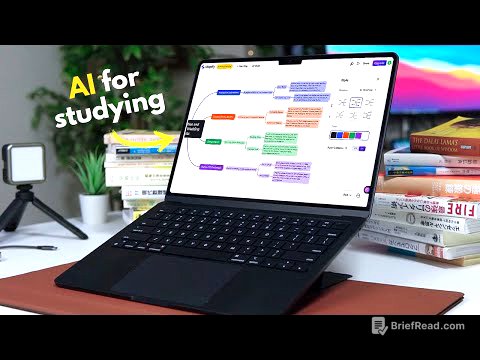TLDR;
This video discusses effective trade management strategies and debunks common misconceptions. It emphasizes data-driven decision-making, including closing trades based on structure shifts, time duration, and avoiding news events. The video also warns against emotional trade management without sufficient data, suggesting that in such cases, it's better to stick to basic rules like closing before news releases.
- Data-driven trade management is crucial for profitability.
- Avoid emotional decision-making based on fluctuating numbers.
- Closing trades based on structure shifts can significantly reduce losses.
- Time-based filters and avoiding news events are effective management techniques.
- Without sufficient data, it's better to avoid active trade management.
Introduction to Trade Management [0:00]
The video introduces the concept of effective trade management, highlighting the difference between strategies that lead to long-term profitability and those that result in losses. It stresses that trade management should be based on historical data and testing, not on real-time emotions or fluctuating numbers on trading platforms. The speaker asserts that the advice is backed by personal experience and data-driven evidence.
Managing Trades Based on Trend and Structure [1:38]
The most effective way to manage trades, particularly when trading with trends, involves monitoring the price structure. If the price breaks structure in the opposite direction of the trade, it's often best to exit the position. This technique can be tested by analyzing past trades to determine how many hit stop-loss after breaking structure versus how many went on to hit take profit. Cutting losses when the structure is broken can significantly improve profitability by reducing the average loss size.
Time-Based Trade Management [5:14]
Another data-backed approach to trade management involves setting time-based filters. By analyzing the duration of winning versus losing trades, traders can identify the optimal time to remain in a trade. If a trade has been open for too long without significant movement, and data suggests it's unlikely to become profitable, closing the trade can prevent unnecessary losses. This strategy is based on the observation that most successful trades show quick reactions, while prolonged trades often indicate a lack of sufficient volatility.
The Importance of Avoiding News Trading [6:47]
A simple yet crucial management decision is to avoid trading during news events. Traders should always check the economic calendar and close positions before major news releases or press conferences. The primary reason is to avoid slippage, which can lead to significant unexpected losses. While positive slippage is possible, the risk of negative slippage outweighs the potential benefits, especially for those trading with larger lot sizes or over-risking.
Why You Might Not Want to Manage Your Positions [8:10]
Many traders mismanage their positions by constantly monitoring charts and making emotional decisions based on short-term fluctuations. This is especially true for those without sufficient data to support their management decisions. For most traders, it's better to avoid active trade management altogether, focusing instead on basic rules like closing positions before news events or the evening rollover. Any management decisions should be supported by individual strategy data, as data can vary. Without data, the outcome is unpredictable.
The Ultimate Goal of Trade Management [10:10]
The ultimate goal of trade management is to increase the probability of a profitable strategy by limiting loss size and increasing win size. By making data-driven decisions and avoiding emotional reactions, traders can improve their long-term profitability and create a more robust trading strategy.









